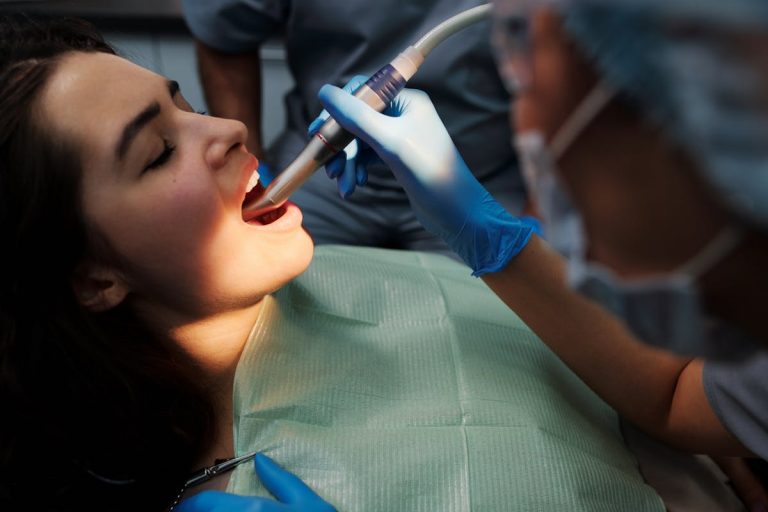• Periodontal disease, also known as gum disease, is an infection of the gums and supporting structures of teeth caused by bacteria in plaque.
• Risk factors for periodontitis include smoking cigarettes, genetics, poor oral hygiene habits, and impacted wisdom teeth.
• Left untreated, periodontitis can lead to tooth decay, loose teeth, bad breath, and other health problems.
• Periodontal disease is treatable with the right dental care and preventive measures like professional cleanings and regular brushing and flossing at home.
• Keeping up with good oral hygiene habits now can help stave off serious complications later on.
Periodontal disease, most commonly known as gum disease, is a condition that affects the gums and supporting structures of your teeth. It can range in severity from mild to severe, but regardless of its level of advancement, periodontitis can significantly impact your life. Here’s a closer look at periodontitis and how it can affect you.
What Is Periodontitis?
Periodontitis is an infection caused by bacteria in plaque that accumulate around your teeth and gums. This infection causes inflammation of the gums, making them red and swollen.
The gums will also start to pull away from the teeth, which creates pockets where more bacteria can accumulate and cause further damage. If left untreated, these pockets become deeper and deeper until they eventually lead to bone loss around the tooth roots. At this stage, periodontitis is considered advanced, as it has already caused irreversible damage to the tooth structure.
Risk Factors
To prevent periodontal disease, it’s essential to understand what puts you at risk. Here are some risk factors for the disease:
Smoking Cigarettes
Smoking cigarettes is one of the most significant risk factors for developing periodontitis. This is because chemicals can irritate the gums, making them more vulnerable to infection. Additionally, smoking cigarettes impairs your body’s ability to fight off bacteria, making it easier for bacteria to build up in the mouth and cause gum disease.

Genetics
Studies have shown that genetics can play a role in determining who is more likely to develop periodontal disease. If a family member has had periodontal issues, you may be at a higher risk. Additionally, certain medical conditions, such as diabetes, can increase your likelihood of developing periodontal disease due to a poor immune system response or blood circulation.
Poor Oral Hygiene Habits
Poor oral hygiene habits are another significant risk factor for developing periodontitis. For example, not brushing or flossing regularly allows plaque and tartar to build up on your teeth and around your gums. If these deposits are not routinely removed, they can cause inflammation and infection of the gums, which leads to periodontal disease.
In addition, not visiting your dentist for regular check-ups increases your likelihood of developing gum disease because it prevents any problems from being addressed before they become too severe.
Impacted Wisdom Tooth
Lastly, having an impacted wisdom tooth can increase your risk of developing periodontal disease. Wisdom teeth are the last set of molars to emerge, and if they fail to appear properly, they can become trapped in the jawbone or gums, preventing them from being cleaned properly.
This makes them a perfect breeding ground for bacteria which can lead to infection and gum. If you have an impacted wisdom tooth, seek a wisdom tooth extraction surgery immediately. This will help prevent further damage and decrease your chances of developing periodontal disease.

How Does It Affect Your Life?
The most apparent way periodontitis affects you is through oral health issues like tooth decay and loose teeth. It can also cause bad breath or halitosis due to the accumulation of bacteria in the mouth.
But beyond that, periodontal disease has been linked to other conditions such as heart disease, stroke, diabetes, rheumatoid arthritis, and pregnancy complications such as preterm or low birth weight babies. Studies are still ongoing into exactly why these conditions are related to poor oral health, but there is evidence that suggests that inflammation caused by gum disease might be behind these links.
Treating Periodontal Disease
Fortunately, periodontal disease is treatable with proper dental care, like professional cleanings and regular brushing and flossing at home. However, if your case is severe, then you may need more extensive treatment, such as laser therapy or surgery to remove infected tissue or correct damaged bone structure around your teeth. Your dentist can advise you on what kind of treatment is best for you based on your needs.
Periodontal disease can severely impact your oral health and overall well-being if left untreated for too long, so it’s essential to take care of your mouth. Preventive measures can help stave off serious complications later down the line, so don’t delay getting checked out if you think something might be wrong! In addition, keeping up with good dental hygiene habits now could pay off big time in the future!






